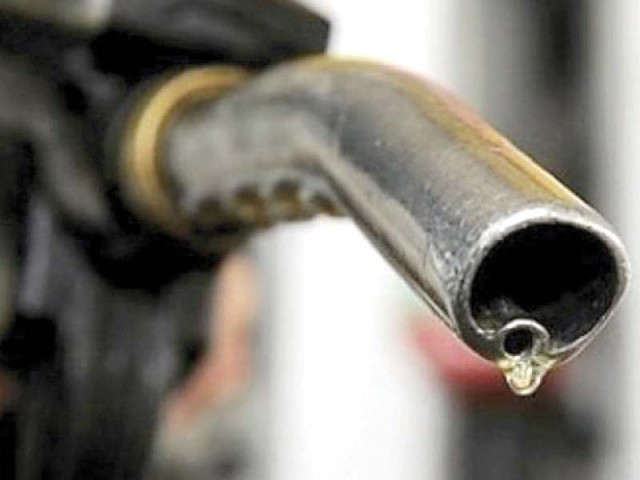Pakistan delays plan to hedge oil prices
Earlier, experts had advised govt against hedging as global prices were volatile

Pakistan has delayed its plan to hedge petroleum prices as experts have advised the government to stay away from materialising its hedging strategy while prices of petroleum products remain volatile.
In a cabinet meeting held in March this year, Pakistan had decided to come up with an oil hedging plan in the wake of a tug of war between Saudi Arabia and Russia over global oil production, coupled with the rapid spread of the coronavirus, which sent crude prices crashing to a 17-year low in the global market.
Sources told The Express Tribune that cabinet members had recalled the decision of the cabinet in July this year to hedge petroleum prices. It was enquired as to why the price was not hedged when the POL prices had hit rock bottom. To this, Adviser to Prime Minister on Finance Hafeez Shaikh informed that a series of discussions with major players in the hedging business had been held. The experts had advised against hedging while prices remained volatile as the cost would be exuberant.
Now that the market had stabilised, price of around 15% of imported POL would be hedged, Shaikh had informed. But the plan has not materialised so far even after a couple of months. The response of the Petroleum Division was awaited till the filing of the story.
Due to volatility of the petroleum prices in international market, traders had been active to strike deals with different countries. There had been criticism when a plan was submitted to different forums for a decision and higher rates were suggested and no final decision could be taken.
In a risky move, the Petroleum Division had sought purchase of oil at $8-15 per barrel higher than the current low price for hedging. However, these rates were not approved.
The battle between the two giants Saudi Arabia and Russia had added to the woes of the oil market where demand had gone down sharply in the wake of the coronavirus outbreak that led to lockdowns in many countries.
In a cabinet meeting chaired by Prime Minister Imran Khan, the Finance Division was directed to expeditiously finalise a proposal for hedging petroleum products and bring it to the cabinet, through the Economic Coordination Committee (ECC), for formal approval.
Shaikh had told the cabinet meeting that prices of petroleum products had plummeted in the international market following the collapse of an agreement between Saudi Arabia and other oil producers, led by Russia, on limiting crude production.
He said the Finance Division was working on various hedging options to take advantage of the current low oil prices, which would slash the import bill and leave a positive impact on the national economy.
The cabinet members emphasised that the hedging proposal should be finalised at the earliest and presented to the cabinet for approval.
Officials say that delay in hedging prices was also due to the state-run Pakistan State Oil (PSO) that had refused to take burden of hedging oil prices and wanted the government to pass on the burden of price hedging risk to the consumers.
The hedging of oil prices is said to be like gambling in which parties may be gainers or losers as well. Experts had argued at the time that it was not the right stage for Pakistan to strike a deal as no one was able to predict the prices amid the pandemic.
PSO had informed the government to share the burden of hedging oil prices by all departments and regulators involved in it.
It had proposed a document on the Standard Operating Procedures (SOPs) for the entire hedging process, including the decision making process, premium payments and recovery, pricing adjustments and gains appropriation and distribution process.
It had said that SOPs must clearly define the roles and responsibilities of all the stakeholders including the Economic Coordination Committee, Ministry of Energy, Ministry of Finance, Oil and Gas Regulatory Authority, National Electric Power Regulatory Authority, PSO, Sui Northern Gas Pipelines and others.
“We believe that the government’s perspective of partially protecting the country’s oil exposure, against the adverse oil price movements and to gain potential advantage through hedging arrangements could be a beneficial initiative for the country,” PSO authorities had said. They added that proposed hedging strategy be executed in a transparent and informed manner.
Published in The Express Tribune, September 13th, 2020
Like Business on Facebook, follow @TribuneBiz on Twitter to stay informed and join in the conversation.



















COMMENTS
Comments are moderated and generally will be posted if they are on-topic and not abusive.
For more information, please see our Comments FAQ